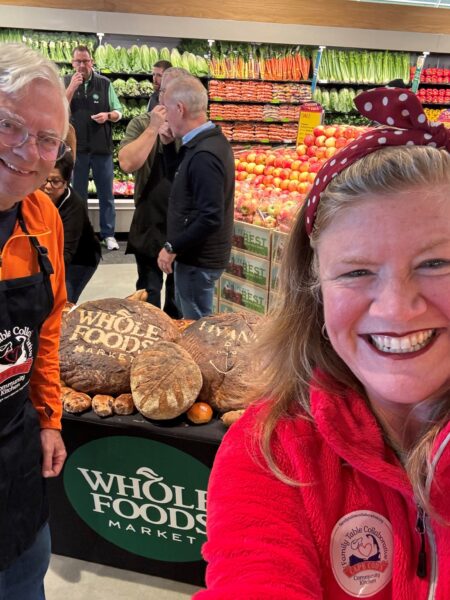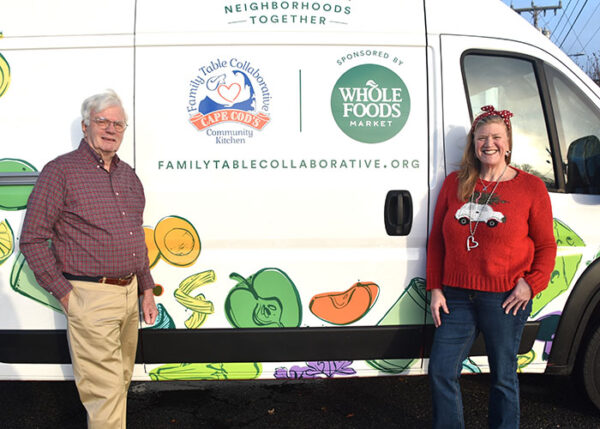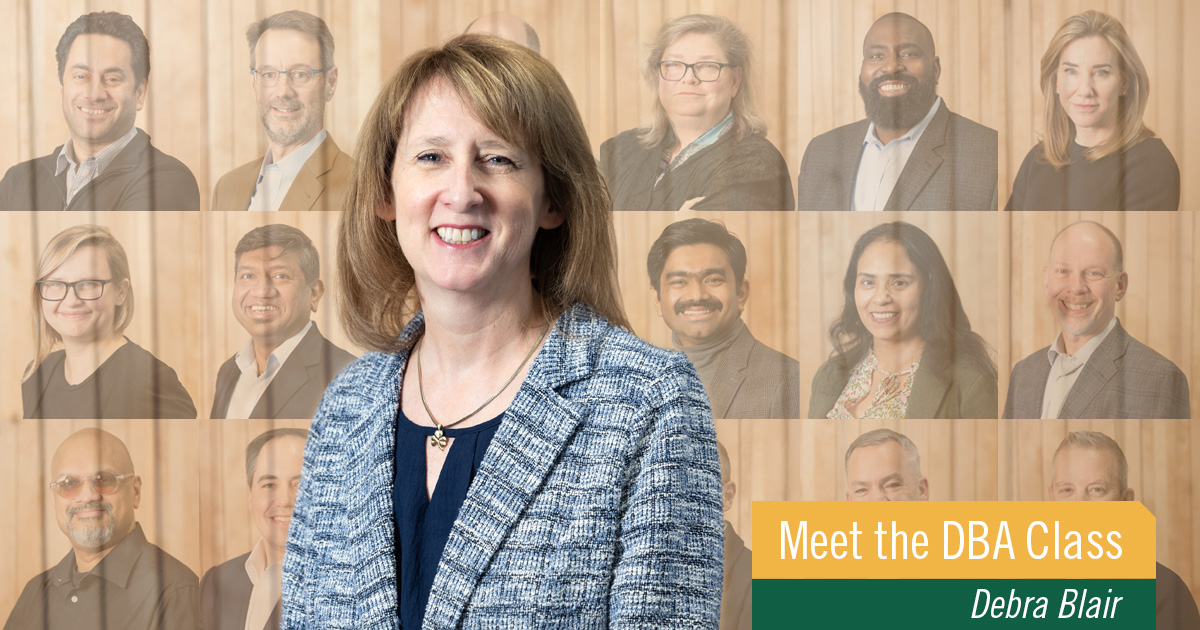Jeni Wheeler MBA’05 Serves Up Nutrition to Cape Communities as Holiday Needs Surge

For Jeni Wheeler MBA’05, the holiday season isn’t just a time of giving—it’s proof that resilience, resourcefulness, and a helping of entrepreneurial know-how can feed and nurture a community’s spirit.
As co-founder and director of the Family Table Collaborative, a Cape Cod-based social enterprise addressing nutritional security, Wheeler has turned her personal trials and entrepreneurial acumen into a lifeline for thousands.
Since its inception as a rapid-response program during the early days of the COVID-19 pandemic, the Collaborative has served over 185,000 nutritious, prepared meals and repurposed more than 75,000 pounds of fresh produce. This holiday season, Wheeler and her team are facing an even greater challenge.
“We saw a 33% increase in demand for Thanksgiving meals this year, and our public distributions alone were up by 50%,” Wheeler explained. “We’re anticipating similar numbers for Christmas.”
The surge in need highlights a broader trend Wheeler has observed: nutritional security remains a critical but often overlooked issue. Unlike food security, which primarily focuses on economic access to food, nutritional security ensures that the food is both accessible and healthy—a cornerstone of the Collaborative’s mission.
From Hardship to Impact
Wheeler’s journey to the Family Table Collaborative began with a fall that left her with a traumatic brain injury in 2017. She relocated to Cape Cod for treatment, spending four days a week at the Spaulding Rehabilitation Hospital in Sandwich, Massachusetts. Her injuries left her extremely sensitive to loud noises and light, and she could barely make a fist with her dominant right hand.

“I was on Cape Cod, horribly broken, and I was just trying to find something to do that reminded me of me,” Wheeler said. She had seriously considered going to culinary school when she was younger, so when a friend suggested she try cooking for a local soup kitchen, she gave it a shot.
“The commercial kitchen fans helped my noise sensitivities because they were like a white noise,” Wheeler said. She cooked only three times before they asked her to run the soup kitchen.
“It showed me that I had something to give at a time when I believed I didn’t,” Wheeler said.
By 2020, the pandemic spurred Wheeler and her friend and fellow Babson alumnus Harry Henry ’68 to launch the collaborative. With initial support from local restaurants, farms, and organizations like the Greater Boston Food Bank, they distributed nutritious, ready-to-eat meals to families in need.
“COVID amplified the gaps we were already seeing,” Wheeler noted. “People who had never needed help suddenly did, but they often waited too long because they didn’t know where to turn. That inspired us to create something more sustainable.”
A Babson-Driven Mission

Wheeler credits her Babson MBA for much of the collaborative’s success. She reflects fondly on the late Professor Natalie Taylor, who introduced her to social entrepreneurship. Taylor, who worked at Babson for 26 years, pioneered much of Babson’s curriculum on social entrepreneurship.
“Natalie showed me how to use business modeling to solve social needs,” Wheeler said. “That concept became the foundation of the Family Table Collaborative.”
The collaborative operates as a “self-sustaining nonprofit,” blending community partnerships with businesses such as Whole Foods Market, grants, and donations with revenue-generating programs such as the nonprofit’s catering arm. Wheeler’s approach ensures the organization can focus on its mission rather than relying solely on fundraising.
Scaling Up for the Holidays
The holiday season brings unique challenges, from increased demand to the logistical complexities of preparing allergen-sensitive meals.
“For Thanksgiving, we distributed over 1,800 meals, including gluten-free, vegan, and vegetarian options,” Wheeler said. Volunteers are crucial to the operation, contributing more than 20,000 hours this year.
“Our team takes in food donations, determines what can be used for meals, and redistributes surplus produce to other organizations,” she explained. “It’s a full-cycle model that reduces waste while feeding the community nutritious, delicious meals.”
Meanwhile, Wheeler has been working with state officials to become an emergency food provider, ensuring that Massachusetts’ residents in need have access to quality food. The Family Table Collaborative was also named the World Central Kitchen (WCK) site for the region this year. The WCK, a global non-profit that provides meals to those affected by humanitarian, climate, and community crises, added Wheeler to their global network of culinary leaders.
Looking ahead, the collaborative is embarking on a capital campaign to purchase the property it is operating out of and expand its offerings. Plans include a teaching garden, additional workforce housing, and a studio kitchen for educational programs.
A Message of Hope
As the end of the year approaches, Wheeler emphasizes the importance of compassion and innovation in addressing community needs.
Interested in learning more? Reach out to Jeni Wheeler at jeni@familytablecollaborative.org or at www.familytablecollaborative.org
“The answers to yesterday’s problems aren’t solving today’s challenges. We need to innovate; elevate the conversation,” she said. “Healthier people create healthier communities. By meeting people where they are—with prepared, nutritious meals—we can help them help themselves.”
For Babson students and alumni inspired by her story, Wheeler offers this advice: “Follow your passion and don’t be afraid to think differently. You can do good while doing good business.”




